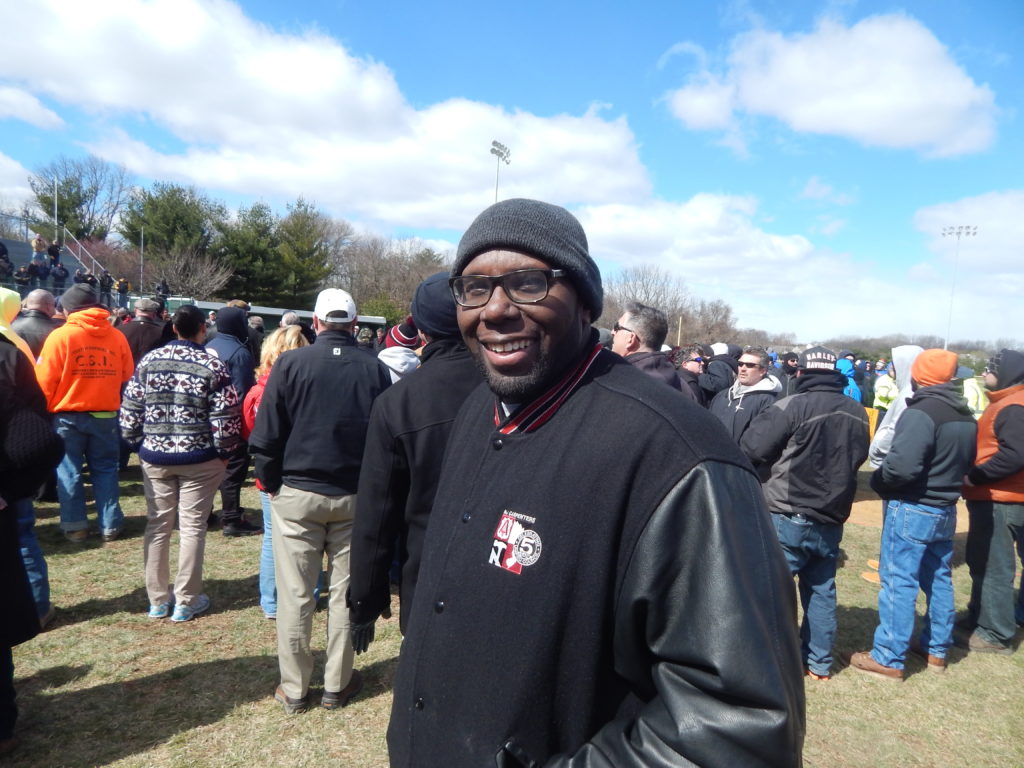Pending Disclosure Bill Requires “Civic Courage”
Listen to audio version of this article

Legislation requiring registration and disclosure by independent, outside groups was passed by the Senate recently by a unanimous, bipartisan vote of 31-0.
S-1500, sponsored by State Senator Troy Singleton (D-7th), brings so-called “Dark Money” groups, or independent factions, “largely” in line with political parties, continuing political committees (PACs) and candidates in terms of registration and disclosure.
The word “largely” is significant. Though under the legislation, independent factions, or special interests, would, like parties, PACs, and candidates, be required to disclose contributions and expenditures, they would, nevertheless, still have advantages.
Contributions to parties, PACs, and candidates are subject to contribution limits. By virtue of the 2010 U.S. Supreme Court decision Citizens United v FEC, contributions to independent factions are unlimited.
Moreover, while all financial activity by parties, PACs, and candidates are regulated under the campaign finance law, only those contributions and expenditures designated by independent groups for influencing elections and issue advocacy would require disclosure.
Pursuant to 2011 D.C. Federal District Court decision in Carey v. FEC, these independent organizations could establish, separate, segregated bank accounts for the purpose of depositing contributions and making expenditures for the purpose of influencing elections and public policy.
Funds used for general operations, general social-welfare purposes, and other non-election or issue related functions would not be subject to disclosure.
Finally, to avoid any possibility of divulging membership fee payments, or small donations, the bill requires only large donations of over $10,000 to be shared with the public by independent groups.
In the gubernatorial/legislative contests of 2013 and 2017, and the congressional election of 2018, independent factions spent $138 million, more than twice as much as county and state party committees combined.
Further, in terms of lobbying and issue advocacy, in 2017 about $90 million was reported under the lobbying law. This figure does not include lobbying and issue advocacy at the local level and activity statewide that while not disclosed currently would be under the proposed legislation.
Despite the growing influence over the State’s elections and public policy by independent groups, and despite the disparity in disclosure requirements between them and parties, PACs, and candidates, there are those that contend that special interest independent groups deserve special treatment not provided to the other entities under the law.
One criticism suggests that S-1500 will discourage people from political participation, including contributing to not-for-profit groups. This view maintains that disclosure of contributions over $10,000 may subject the donor to intimidation and harassment.
Obviously, such behavior should be strongly discouraged and subject to stringent penalties. But it should not be a reason for a free people to fail to participate in politics.
If that were the case, the colonials would never have declared independence from Great Britain. Surely, the 56 delegates to the Second Continental Congress who signed the Declaration on July 4, 1776 were subject to much greater fear and harassment than the multitude of people who make political contributions today will ever experience.
These courageous men were considered traitors to Britain. They and their families had to escape the grip of the Redcoats.
As the late Supreme Court Justice Antonin Scalia said, “Requiring people to stand up in public for their political acts fosters civic courage, without which democracy is doomed. For my part, I do not look forward to a society which, thanks to the Supreme Court, campaigns anonymously . . . hidden from public scrutiny and protected from the accountability of criticism. This does not resemble the Home of the Brave.”
Scalia’s sentiments were in the tradition of Aristotle who believed every citizen has a duty to participate in politics and further their personal development.
Another argument often made is that anonymous speech is in the tradition of America. To bolster this claim, the Federalist Papers are often mentioned as an example of three founding fathers who wanted to protect their identity.
This argument is misleading. The authors of the Federalist Papers, Alexander Hamilton, James Madison, and John Jay, went under the pseudonym Publius not out of fear of retribution or criticism but to identify themselves with the great Roman champion of republican government Publius Valerius Publicola.
Publius was involved with the founding of the Roman Republic. Indeed, it was not uncommon for leaders of the day to write under the name of Roman heroes who stood for the republic. The pseudonyms Cato, Brutus, and Cassius were used by anti-federalists as well. These were all heroes to the Americans.
Another criticism of the bill requires a response.
Regarding the ban on officeholders serving as chairpersons or treasurers of independent groups, this provision mirrors that which applies to political parties and continuing political committees. It exists to prevent the circumvention of contribution limits which apply to officeholders, who are considered candidates under the Campaign Act.
S-1500 is a good government bill that will bring greater transparency to elections in New Jersey as well as to public policy debates.
A companion bill in the Assembly, which as yet has not taken up the measure, is sponsored by Assemblyman Andrew Zwicker (D-16th).
The passage of this legislation is needed to bring balance to electoral politics in New Jersey and to help citizens to become more educated and informed as to who is behind the “Dark Money” groups that are increasing their influence over elections and public policy in the State.
As James Madison wrote in 1822, “A popular Government, without popular information, or the means of acquiring it, is a Prologue to a farce or a tragedy, or, perhaps both.”
Jeff Brindle is the Executive Director of the New Jersey Election Law Enforcement Commission.
The opinions presented here are his own and not necessarily those of the Commission.





